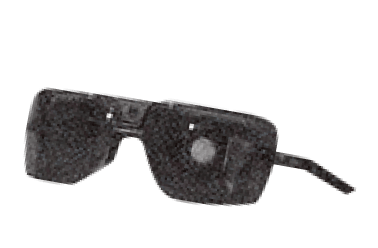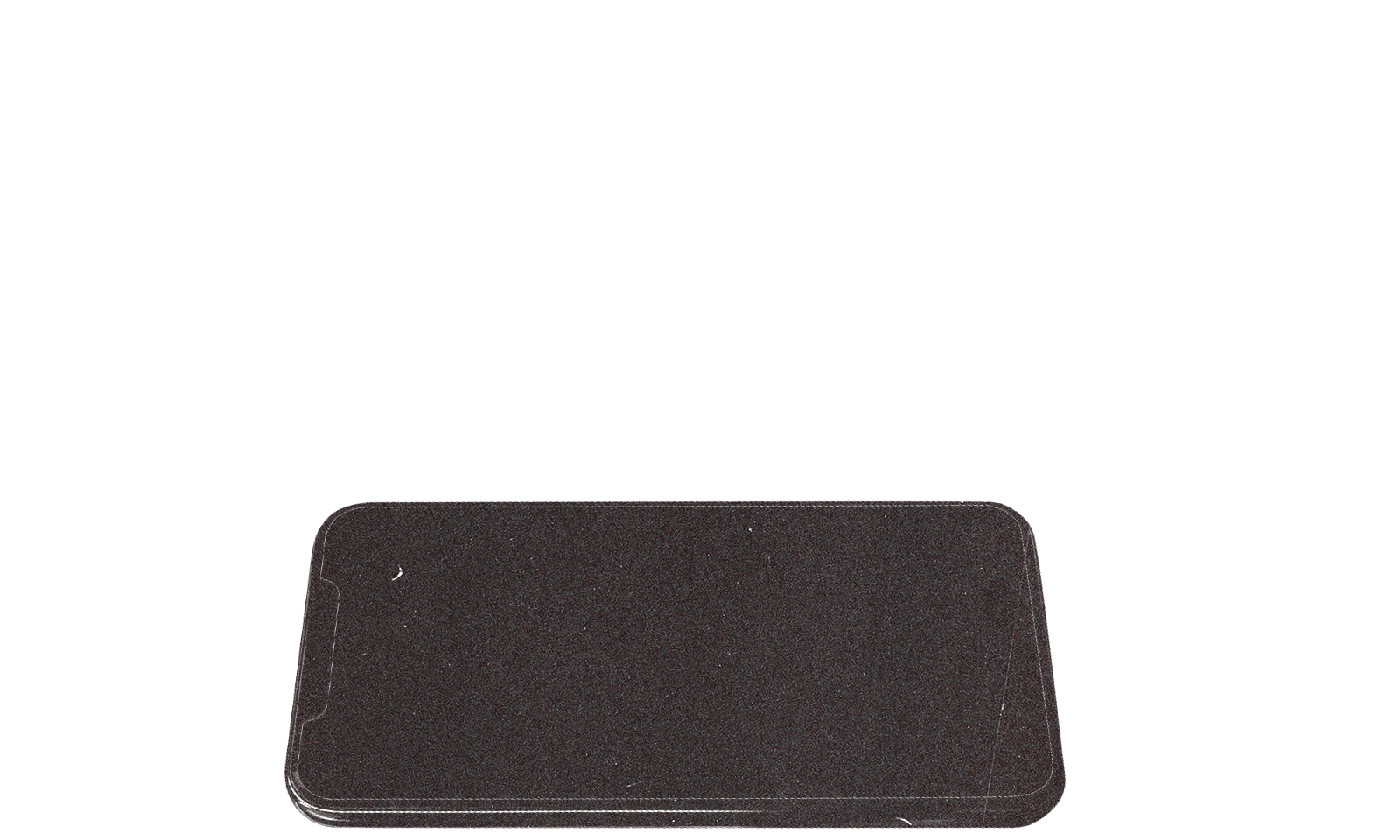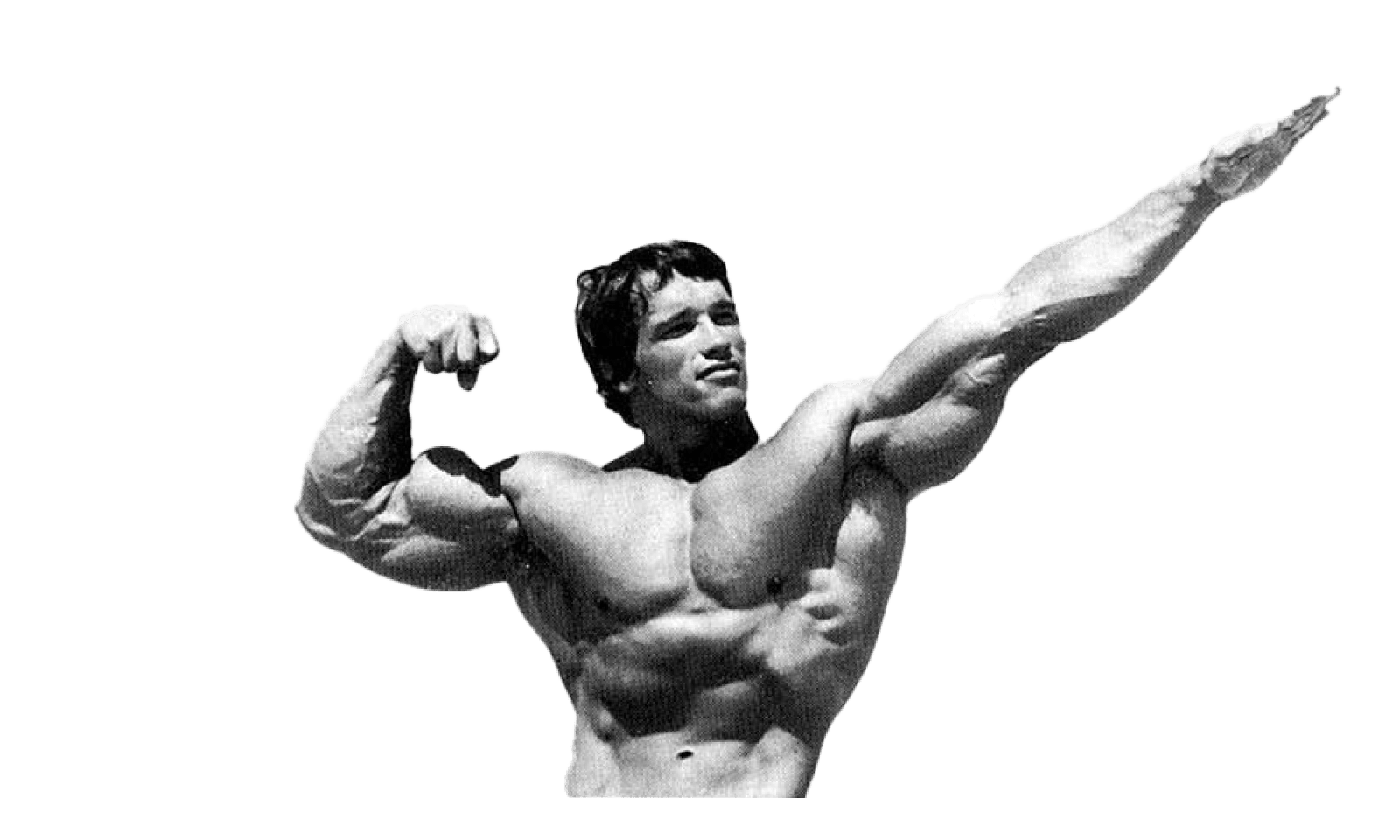Special Report: You know the feeling all too well — the soreness, aches, and pains resulting from day-to-day life, aging, starting a new workout routine, or pushing yourself harder than before.
Burnout doesn’t happen by accident. And feeling good isn’t just about taking days off. If you want to feel energized and healthy, recovery can be supported in many ways you might not realize.
As a special Sunday email, we’ve created a guide using the latest research to help you refuel, recover, and recharge your body and mind to feel your best inside and out of the gym.
The Most Common Recovery Mistake
If you’re feeling some serious soreness, think twice before popping pills
Research suggests some of your favorite over-the-counter pain relievers can slow your recovery.
Nonsteroidal anti-inflammatory drugs or NSAIDs (think medications like Advil or Motrin) are designed to remove inflammation. But in the case of recovery, inflammation can be a good thing and helps support your natural healing process by removing dead cells and killing pathogens that could prevent your body from repairing — and it can help you bounce back from intense exercise.
Although pain pills can help reduce discomfort (and please take them if it’s necessary or recommended by your doctor) — don’t confuse that feeling for healing. Reducing inflammation might take off the edge, but it could be at the expense of longer, slower recovery.
The Foundation of Great Recovery
For all the hype about biohacking and supplements (many of which we share below are very overrated), your first line of defense is the most obvious.
Sleep is — far and away — the best way to recover mentally and physically. But you may be underestimating how much a good night of rest could improve your recovery.
When you sleep, your muscles repair, your brain processes information, and your energy stores replenish.
Research suggests that people who get at least 7 hours of sleep experience 30 percent less muscle soreness and recover their strength faster than those getting less than 6 hours.
But that’s not all. Good sleepers are also 60 percent less likely to get injured, have better mental clarity and cognitive processing, see improvements in endurance and power, and experience a dramatic reduction in their perception of fatigue.
One study even found that sleep quality is a predictor of muscle mass, strength, anxiety, depression, and quality of life.
This means that prioritizing sleep isn’t just about feeling rested—it’s about enhancing the capacity of your mind and body, regardless of what life throws your way.
As a rule of thumb, aim for a minimum of 7 hours of sleep per night, try to shut down at a similar time each night, and cut off eating at least 2 hours before bed to improve your sleep quality.
How To Upgrade Your Sleep For Better Recovery
You know sleep is important — but sleeping better isn’t always easy.
New research suggests that chilling your body before and during sleep can help you fall asleep more easily and enjoy higher-quality rest throughout the night.
The study was fascinating. The scientists had participants swallow a sleep temperature pill, and then scientists measured the sleep quality.
Those with lower core body temperature had lower heart rates during their sleep (this is a good thing), and—most notably—more time spent in stage 3 sleep (your recovery sleep) and better heart rate variability (HRV).
And that wasn’t the only study to show the dramatic difference of chilling out in your sleep. New research suggests that sleeping on a cool mattress can improve your sleep and recovery.
In the study, participants compared sleeping in a regular bed to resting on a cooling mattress.
Those using the sleep pod experienced 34 percent more deep sleep and fell asleep 44 percent faster, increasing their deep and REM sleep, improving cardiovascular recovery, and reporting feeling calmer and more comfortable.
The magic is working with your body’s preferred nighttime state. Your body wants to cool down when it’s time for sleep because it helps your brain transition into the rest phase. Your sleep-wake cycles are controlled by your circadian rhythm. Your brain wants a cooler temperature for rest, so it signals to your body to reduce and change your temperature throughout the night. If other factors keep your body too warm, it disrupts your rest.
Other research also found that sleeping on a cooler mattress improves sleep quality (more time spent in restorative sleep) and lowers heart rate, similar to exercise.
Lots of mattresses make big claims, and we tested them all. Eight Sleep earned our respect because it’s clinically proven to help you fall asleep faster, sleep longer, have fewer sleep disturbances, and have more energy the next day. Because the Pod 4 adjusts to your body’s sleep cycle, studies suggest their pod will give you up to one more hour of quality sleep per night.
As members of the positive corner of the internet, we love getting you deals on the best productions.
If you want to upgrade your sleep, use the code “PUMPCLUB” to save up to $350 OFF the new Pod 4 by Eight Sleep. This is a special offer just for Arnold’s Pump Club. Eight Sleep currently ships within the United States, Canada, the United Kingdom, Europe, Australia, and select countries in the EU. And it includes a 30-night trial. To us, it’s one of the best health investments you can make.
The Pain Pill Alternative
A little spice could be the answer if you’re looking for a more natural way to treat your aches and pains.
Turmeric—a spice related to ginger—could help reduce pain and improve recovery. The reason is curcumin, a compound found in turmeric, which studies suggest can help fight inflammation and provide a strong antioxidant boost.
One study found that people with knee osteoarthritis had just as much relief taking about 1,500 milligrams of ibuprofen daily as they did using 1,200 milligrams of ibuprofen.
So what’s the catch? For one, you probably can’t cook your way to happier joints. Curcumin is poorly absorbed, and you need a lot of it to see benefits. So, if you want to try it, you’ll want to find a concentrated supplement. And if you buy a supplemental version, make sure it includes black pepper extract (AKA piperine) to improve absorption. Research suggests you’ll want approximately 20 mg of piperine for every 1,500 mg of curcumin. And you’ll need to be patient. Most research suggests you’ll need to use it daily for about 1 to 2 months before you experience relief.
Are You Under-Recovered? Take The Recovery Test
Want to know if you’re not recovering well? Check your pulse.
Testing your resting heart rate (RHR) first thing in the morning is a great way to determine whether you’re recovering well or worn down.
While your heart rate might vary throughout the day, the morning rate after you wake gives you a clearer picture of how your body is bouncing back from daily stressors.
Take your baseline heart rate immediately after waking up (before leaving your bed) for the next five days. This will give you a sense of your normal resting heart rate.
If it’s significantly elevated from its normal average (8 or more beats per minute), that’s a sign that you’re not recovering well, whether from hard workouts, stress, poor sleep, or other aspects that could be holding you back. Don’t worry if it varies by a few beats per minute. But if there’s a big jump, it’s usually a strong indicator that your body is worn down.
The Pre-Workout Recovery Booster
When you think about the recovery process, you usually think about what you do once your workout is over. But what you drink before you begin can play a big role, too.
Research suggests that having coffee before your workout can significantly improve fatigue and the perception of pain and exhaustion. One study even found that pre-workout caffeine can reduce muscle soreness by nearly 50 percent.
The sweet spot appears to be about 200 mg of caffeine (or about two cups of coffee) around 1-hour before your training session.
The Recovery Workout
We’ve told you that movement is medicine, and it can help with your aching muscles, too. If you’re feeling stiff or achy, try this four-part “mobilty tonic” designed by strength coach Dan John.
It addresses common tight spots with a short workout combining light weightlifting and static stretching.
The Mobility Tonic Workout
25 kettlebell swings (a dumbbell will work in a pinch).
A single goblet squat where you hold the weight at the bottom.
10 high-knee marches in place.
After the march, you hold a static stretch with your knee up to your chest (the top part of the march) for 5 to 10 seconds per leg.
Then, do the entire circuit again. You can perform anywhere from five to 10 total rounds.
In the end, you’ll feel a lot more elasticity in those tight trouble spots and feel stronger and more mobile.
Were We Wrong About Rest Days?
How much time off do you need between training sessions? You might need much less than you think if you're not a beginner.
One of the most commonly held beliefs is that your body needs at least 48 hours of rest before you train the same muscle again. So if you trained your chest and back on Monday, you’d want to wait to hit those muscles again until Wednesday, at the earliest. Researchers recently challenged this belief by seeing what happens when training at a high intensity four days in a row but with limited total volume (not doing too many sets and reps). The results?
Despite working out multiple days in a row, training every day did not harm performance and even led to some improvements. But there was a big catch.
In the study, participants performed just two sets of 11 different exercises. The first set consisted of 10-12 reps, and the second focused on doing as many reps as possible (with one small important limit we’ll cover in a moment). By the end of the four days, many participants did more reps on day 4 of the workout than on day 3.
What to make of it all? For starters, the study focused on advanced lifters. If you’re a beginner or intermediate, your body likely needs more time to recover. But here’s the catch: the participants did not take each set to complete failure. So they could train more frequently by not leaving each workout maxed out.
Instead, they were instructed to leave at least one rep in the tank. Combining more lifting experience and not pushing to failure made it possible to train more often, recover, and stay strong.
This is good news for people who need to settle for shorter, more frequent workouts. It shows you don’t have to do endless sets in the gym. Instead, if you can push yourself hard for a couple of sets and find your way to the gym several days per week, you can see amazing results without burning out your body.
A Protein Nightcap? (Is Not As Helpful As You Might Think)
Getting enough protein in your diet is important for recovery, but is more protein at night even better?
A recent study found that taking extra protein before sleep won’t improve recovery, performance, or muscle gain.
Because you fast when you sleep, some experts believe a pre-bed protein boost will leave you better off the next day. To determine if there was any truth to the theory, scientists tested more than 100 British army recruits during basic training to assess the effects of a pre-sleep meal. The participants were randomly assigned to one of four groups: high protein before bed (60 grams), low protein before bed (20 grams), carbs before bed, or nothing.
Despite the added protein, all four groups saw similar changes in fat mass, bone mineral density, exercise performance, recovery, muscle soreness, or the perception of fatigue.
You might be wondering why protein didn’t make a difference. It’s because the participants were likely getting enough protein. From a muscle and performance outcome, there appears to be a threshold you need to hit for protein to work its magic.
Eating about 1.6g/kg per day of your body weight is enough to help build muscle, train hard, and improve recovery. And — if you eat more — there’s not much additional change.
That doesn’t mean you won’t see any benefits from consuming more protein. But it’s more important to hit the minimum than it is to eat the maximum.
The main takeaway: to get the most out of your diet, focus on getting enough total protein in a day (anywhere from .6 to 1 gram of protein per pound of goal body weight) rather than stressing when you have it. There’s no need to take protein before you sleep, but there’s likely little downside if you do.
Underrated Recovery Supplement I
Nitrates — commonly found in beetroot juice (or less concentrated amounts in beets) — might give you the recovery boost you want.
Research suggests that beetroot (which increases nitric oxide in your body) promotes blood flow and oxygen to your muscles, improving recovery.
The key benefit is using it at the right time and for the appropriate type of exercise. Taking beetroot before your workouts appears to give the most benefit (rather than after), and anaerobic workouts (like weight training) have shown the best results. The improvements weren't as impressive or non-existent in research with longer workouts or cardio (like marathons).
Research suggests anywhere from 500 to 1,200 mg of nitrates can support better recovery.
Underrated Recovery Supplement II
A recent review found that cherries could help you bounce back faster from your hardest workouts.
Scientists reviewed 14 studies and found that cherry juice improves muscle strength recovery and muscle soreness and helps with muscle damage and inflammation. There’s also emerging evidence that it could reduce mental fatigue, exhaustion, and blood pressure.
While most research focuses on tart cherries, a deeper dive suggests any type of cherries might be effective. The secret ingredient in cherries appears to be anthocyanins, a powerful antioxidant that offers anti-inflammatory benefits. And anthocyanins are found in all cherries, not just the tart ones.
Research suggests that to get the nutrients your muscles need, you need to eat approximately 100 cherries.
But there appears to be a catch: if you want the recovery benefits, you can’t simply enjoy cherries or cherry juice after your workout. Research suggests that cherries need to be consumed daily to hit a “critical mass” and might be more effective if consumed before your workouts.
The Recovery Playlist (Is Surprisingly Effective)
Researchers reviewed nearly 100 studies on music and the human body. They found that the right post-workout mix can do everything from reducing the perception of fatigue to improving hormones supporting recovery and removing byproducts from training contributing to muscle soreness.
One study found that listening to slower music (around 70 beats per minute) for a half-hour post-workout reduces cortisol levels faster. Another study found that listening to music you enjoy reduces pain and stress and improves your heart rate variability (which is a sign of recovery).
Add it all up, and a little music can help you transition from the amped state of your workout into a mindset and mood that prepares your body to heal.
Many songs will do the trick if you’re looking for the right tempo (around 70 beats per minute). Some examples include Run On (an Arnold favorite by Johnny Cash) or Bohemian Rhapsody (Queen), and more recent songs like God’s Plan (Drake), Wildest Dreams (Taylor Swift), or Make You Feel My Love (Adele). Make your playlist by choosing songs you like and that hit the right beats per minute.
Stress Management
Research suggests that stress might double the time it takes for your body to recover from exercise.
Scientists from Yale and Texas investigated the impact of stress on your training. The researchers found that low-stress participants recovered much better 48 hours after exercise than those who were stressed. In fact, it took the high-stress group a full 96 hours to return to their baseline levels.
But that’s not all. Higher stress levels also increase fatigue and soreness and reduce perceived energy. The study highlights the interconnectedness of mental and physical health and reminds us that stress can impact our bodies in many ways.
Your solution? If you’re going through hard times — whether less sleep, work troubles, relationships, or something else — it might be best to reduce your training frequency during high-stress periods or make sure you’re not training at maximum intensity. If you push too often or too hard when stressed, the lack of recovery could increase your likelihood of injury, breakdown, or getting sick.
While it’s hard to prevent stress, here’s a list of things that work like a chill pill for your mind (in addition to exercise) so you can help reduce stress, which will improve overall health and recovery
Deep breathing (4-second inhale, 4-second hold, 4-second exhale, repeat),
Meditation
Massage
Journaling
Walks in nature
Positive social interactions, including interacting with friends or doing an activity you enjoy.
The Most Time-Efficient, Unassuming Way To Recover
The next time you can’t get your brain to slow down and too many thoughts are racing through your mind, grab a book and read a chapter.
Research suggests that just 6 minutes of reading could reduce stress by up to 60 percent. Reading calms your entire body, lowering your heart rate and blood pressure and slowing down your respiratory rate. Consider it the ultimate chill pill.
Another study compared reading to yoga and found that reading for 30 minutes lowered blood pressure, heart rate, and psychological distress just as much as 30 minutes of yoga.
The next time you’re overwhelmed or having trouble sleeping, pull out a book and read a few pages. It will likely make a difference.
How Anger Reduces Your Immunity
Research suggests anger could reduce the effectiveness of your immune system and leave you vulnerable to illness.
The study revealed that individuals with higher levels of positive emotions, such as happiness and gratitude, showed heightened immune system activity. On the other hand, negative emotions like anger and fear were associated with suppressed immune function.
The researchers explained that the brain communicates with the immune system through neural and hormonal pathways, significantly impacting our overall health. This means that our emotions can influence how well our immune system fights off diseases and infections.
The goal isn’t to not feel anger — that’s a part of being human. It’s to recognize when you’re angry and (more importantly) when you stay angry. Research suggests that merely recalling your anger can reduce the antibody immunoglobulin A — your first line of defense against illness — for up to six hours.
If the anger persists for more than a day, there are a few things you can do to help reset your mind naturally. Engaging in activities that bring joy, such as exercising, spending time with loved ones, and practicing gratitude, can rewire your brain to downshift the changes that occur when in anger, increase positivity, and strengthen your immune system.
The Original Recovery Protocol
Ever been told to “walk off” pain or discomfort? It turns out that, in the right situation, it's pretty good advice.
Walking might be one of the most effective ways to prevent knee pain, according to research published in Arthritis & Rheumatology.
The study examined knee pain in people above 50 and found that those with consistent walking routines experienced significantly less knee pain. The reason? You really do lose it if you don’t use it.
The researchers suggest that walking can help reduce joint damage caused by lack of activity as we age. Walking improves blood flow, helps with mobility, and strengthens bones. It is also associated with reducing lower back pain.
How To Hit Reset on Brain Fatigue
If you ever feel under-slept or like your brain is empty, you might want to add an extra ingredient to your daily smoothie.
Research suggests that creatine can help your brain recover and stay sharp during high stress.
Decades of research support creatine's effectiveness in helping increase strength and muscle when combined with resistance training, but the last two decades suggest it does so much more.
Your body naturally produces creatine in both your body and brain. But when you’re metabolically stressed—such as when you’re sleep-deprived or exhausted—it can drain the creatine in your brain, affecting your mental performance. A little extra creatine is like refueling the energy in your brain cells when they need it most.
That’s why studies suggest that using creatine can help with your cognition and memory and even fight against symptoms of depression when feeling mentally burnt out.
Opt for an NSF certified creatine monohydrate for the best safety, performance, and quality.
The potential brain benefits of creatine are not limited to just one study. In the last 12 years, nearly 33,000 studies have focused on the relationship between creatine and the brain. And — assuming you have no pre-existing conditions (such as renal complications) — it’s completely safe and healthy for your body.
While most research shows that 3 to 5 grams of creatine per day helps your muscles, research suggests that 10 grams of creatine might be the sweet spot for cognitive benefits. You can take in one serving, or you might want to take once in the morning and again at night.
The Real Benefits Of Foam Rolling
A recent study suggests foam rolling helps with pain relief but doesn’t necessarily boost workout performance.
Scientists analyzed participants who performed challenging workouts and then tested three different types of recovery: good old-fashioned rest, light cardio (low-intensity cycling), and foam rolling.
While foam rolling most effectively reduced muscle pain and soreness, it did not improve strength, power, or agility.
If you had to rank-order the recovery techniques, foam rolling was most effective, followed by light cardio and rest.
The Most Overrated Recovery Supplement
Step into any supplement store, and you will find many BCAA products. And that’s because research suggests BCAAs are one of the four most used supplements by athletes and bodybuilders.
However, just because BCAAs play an important role in muscle growth doesn’t mean supplementing with them provides any additional benefit. And a new study suggests that BCAA supplements are — at best — inferior to any complete protein and — at worst — a complete waste of your money.
BCAAs — or branched-chain amino acids — are a collection of three amino acids (leucine, isoleucine, and valine) that stimulate muscle-building. And amino acids are the building blocks of all proteins in your body. One of the three BCAAs — leucine — is especially important in muscle protein synthesis. Naturally, supplement companies started selling expensive BCAAs, and people have been buying them for years.
However, the research repeatedly found that BCAA supplementation isn’t very useful, especially when you get enough total protein in your diet.
You might wonder, “But what if I don’t get enough protein, should I supplement with BCAAs?”
And the answer is still no because of how your body processes amino acids. Even though BCAAs help turn up muscle protein synthesis, muscle-building and recovery is a team sport. There are 20 amino acids, some of which your body creates and others you need to get from your diet. To build muscle, all 20 amino acids must be present. So, when you use a BCAA product, it’s like buying a fancy engine and acting like you don’t need any fuel. Both are needed to make the car — or, in this case, muscle building and recovery — work effectively.
Other Overrated Recovery Supplements
But BCAAs are not alone. New research suggests collagen does not support muscle recovery despite other potential benefits.
Collagen is a popular supplement for hair, skin, and nails, but also for joint recovery. So, researchers tested whether it helps you recover from intense exercise. For 12 weeks, participants performed resistance training and cardio and supplemented with 15 grams of collagen peptides (7.5 grams before and after the workout) or a placebo.
Those taking collagen did not see any improvements in soreness, fatigue, or recovery. And the collagen didn’t improve body composition (fat loss) either.
Whey or plant-based protein offers recovery benefits, so choosing those choices is best.
Research suggests the following supplements are also inferior at helping with recovery:
Glutamine
Testosterone boosters
Nitric oxide boosters
Save your money and stick to the other methods outlined in this guide.
The Recovery Snack
If you’re looking for a new pre-bed snack, this recipe offers more than dessert-like sweetness without all the calories.
The tart cherry recovery bowl can also help you sleep better and recover faster from your exercise.
As mentioned above, cherries are a low-risk, potentially high-reward addition to your diet.
Multiple studies suggest tart cherry juice can help you fall asleep faster, stay asleep longer, and have a higher percentage of deep sleep.
And other research has found that tart cherries reduce muscle soreness and muscle damage. The nutrients in tart cherries build up over time to serve as a form of pre-recovery. So, what you take the night before could help you recover from the next day’s workout.
This recipe — a favorite from You Can’t Screw This Up — offers an enjoyable way to sneak tart cherries into your diet while hitting the sweet spot if you have a post-dinner craving.
Ingredients
1-2 cup frozen tart cherries
1 medium frozen banana
1/2 cup liquid (water, milky, dairy substitute of your choice)
Optional: If you want a protein boost, add ½ to 1 scoop of vanilla or unflavored protein powder
Toppings: coconut flakes, granola, raw pepita seeds, extra cherries, extra banana slices, 100% cacao nibs
Instructions
Add all ingredients together and blend. (For bowls, you want minimal liquid to keep the texture thick like sorbet).
Add toppings.
Enjoy!
The Recovery Toolkit
If you want to bounce back mentally and physically, here’s a recap of what’s most effective to maximize recovery:
Prioritize sleep and focus on a minimum of 7 hours
Sleep in a cool environment for deeper, higher-quality rest. We are paying customers of Eight Sleep and highly recommend their new Pod 4. (Pump Club members save up to $350 and can finance for as little as $100 per month).
Foam roll 2 to 3 times per week (just 5 minutes can make a difference). Or, if you can afford it, get a massage.
Try the “mobility tonic” workout to help remove aches and pains.
Eat .6 to 1 gram of protein per pound of your goal body weight per day.
Take walks to assist with knee and back pain.
Use creatine to help reduce mental fatigue
Drink coffee and/or cherry juice before your workouts
Read a book, meditate, or practice deep breathing to help destress and clear your mind of anxiety or anger.
Train hard, but don’t take all sets to failure.
Don’t forget rest days.
If you’re unsure about your recovery, test your resting heart rate in the morning and make sure there isn’t too much variability.
Not mentioned, but worth mentioning: Alcohol and smoking will both significantly harm your recovery.
Follow the tips, listen to your body (and mind), and you’ll have everything you need to get a little better every day.
We hope you all enjoyed this recovery special, and we’ll see you tomorrow!
-Arnold, Adam, and Daniel
—
Publisher: Arnold Schwarzenegger
Editors-in-chief: Adam Bornstein and Daniel Ketchell



















